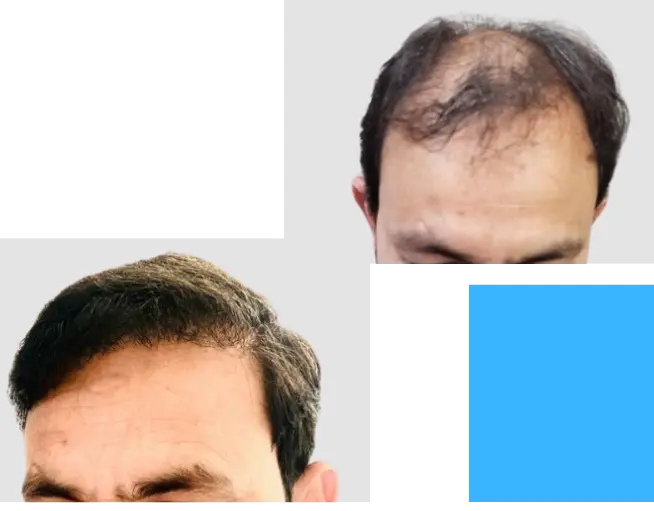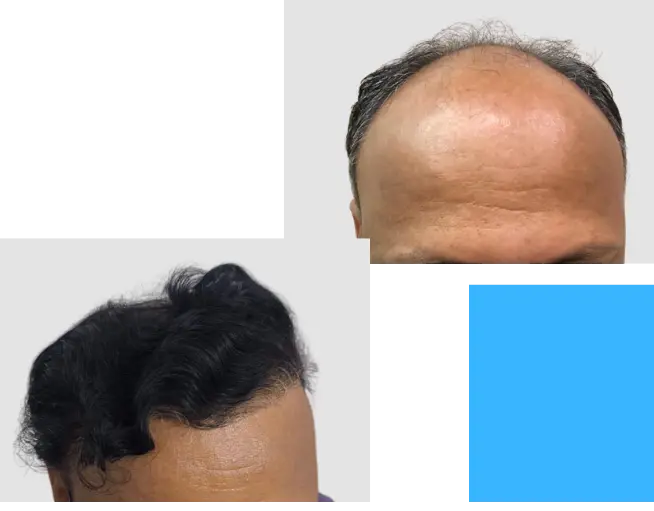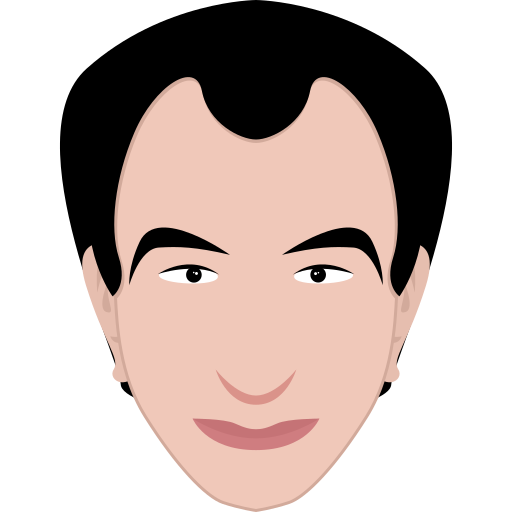Hair Care Treatments for All Types
Effective Hair Care Treatments for All Types
Hair care medicine refers to treatments designed to improve scalp health, reduce hair loss, and support hair regrowth. Whether you’re dealing with thinning hair, breakage, or chronic scalp issues, hair care medicine offers targeted solutions backed by science. These treatments range from over-the-counter serums to prescription medications that nourish the hair follicle and stimulate new hair growth. They’re ideal for anyone—men and women—facing hair-related challenges who want more than just cosmetic fixes.
Unlike general hair products, hair growth treatment options in this category focus on underlying causes like hormonal imbalances, stress, or nutritional deficiencies. Using the right solution to hair loss can make a real difference in restoring confidence and achieving thicker, healthier hair over the long term.
If you’re researching how to stop shedding or wondering what actually works beyond shampoo, this is where to start. Understanding your options and choosing the right formula for your needs is key to long-term success. Healthy hair begins with informed, proactive care.
Understanding Hair Loss and Its Causes
Hair loss is a distressing and common concern that affects millions worldwide. Understanding its root causes is essential for effective treatment for hair loss. There are several types of hair loss, each with its own unique causes and characteristics.
Common Causes of Hair Loss
- Genetic Factors: Hereditary conditions like androgenetic alopecia play a significant role.
- Hormonal Changes: Hormones can affect hair growth cycles, leading to thinning and bald spots.
- Stress: Psychological and physical stress can trigger shedding.
Other causes include poor nutrition, medication side effects, and autoimmune conditions like alopecia areata, which attacks hair follicles. Environmental damage from UV exposure and pollution further compounds the issue. Recognizing these causes helps in choosing the right solution for hair loss.
Hereditary Hair Loss: Genetics and DHT
Androgenetic alopecia, or hereditary hair loss, is among the most common types of hair thinning experienced by men and women. This condition results in the miniaturization of hair follicles due to sensitivity to dihydrotestosterone (DHT), a hormone derived from testosterone. Over time, DHT causes the follicles in the donor area and recipient area to shrink, producing thinner, weaker transplanted hair.
Understanding this mechanism is critical for selecting the right hair restoration strategies, such as follicular unit extraction (FUE) or follicular unit transplantation (FUT), especially for those seeking hair transplant surgeries.
The Impact of Lifestyle and Environmental Factors
Unhealthy lifestyle choices like poor diet, smoking, and inadequate sleep can impact hair regrowth. Environmental stressors such as UV rays, pollution, and humidity can compromise the donor site and overall hair quality. Avoiding over-styling and chemical treatments helps reduce breakage and preserve hair transplant expectations.
FDA-Approved Hair Loss Medications
Two well-known FDA-approved treatments—Minoxidil and Finasteride—are commonly used in hair transplant procedure plans and non-surgical solutions to hair loss:
- Minoxidil (topical) stimulates hair follicle activity, aiding in new hair growth.
- Finasteride (oral) blocks DHT, making it a staple in treating male pattern baldness.
Both medications are often recommended by hair transplant surgeons as part of a comprehensive hair transplant experience.
Minoxidil: Topical Treatments for Hair Regrowth
As a first-line treatment for hair loss, Minoxidil improves blood flow to the recipient area and enhances hair grafts’ survival. It’s available in various strengths and is applicable for both men and women.
Finasteride: Oral Medication for Male Pattern Baldness
Finasteride is widely used in FUE hair transplantations and serves as a preventive measure for continued thinning. Its effectiveness lies in controlling DHT, a key element in androgenetic alopecia.
Natural Remedies and Supplements for Hair Health
For those seeking natural alternatives to invasive procedures or medications, supplements such as biotin, zinc, and omega-3s support overall scalp health. These can complement both FUT and FUE types of hair transplant procedures by nourishing the donor site and enhancing the resilience of transplanted hair.
The Role of Diet and Nutrition in Hair Growth
Proper nutrition, especially protein, iron, and zinc intake, can improve the success of a hair transplant procedure. Diet directly influences the viability of hair grafts and long-term maintenance post-surgery.
Essential Oils and Herbal Treatments
In addition to dietary choices, natural oils like rosemary and peppermint can stimulate hair follicles, supporting both surgical and non-surgical hair restoration efforts.
Advanced Hair Loss Treatments
Modern hair transplant techniques offer advanced options such as:
- Hair transplant surgeries (FUE and FUT)
- Low-Level Laser Therapy (LLLT)
- Platelet-Rich Plasma (PRP)
- Stem Cell Therapy
These methods aim to restore hair permanently, especially for those experiencing bald spots and advanced types of hair loss. Consultation with experienced transplant surgeons is crucial for optimal results.
Hair Transplant Surgery: A Permanent Solution
A hair transplant surgeon typically selects donor areas with dense hair and transplants them to balding regions. This hair transplant procedure offers a solution for hair loss that can last a lifetime, particularly effective for androgenetic alopecia. FUE and FUT are the primary types of hair transplant techniques, each with unique benefits and recovery considerations.
Low-Level Laser Therapy (LLLT) for Hair Regrowth
LLLT boosts circulation in the recipient area and helps maintain the health of transplanted hair. While not a standalone cure, it’s a powerful supplementary method for those undergoing hair transplant procedures.
Managing Hair Loss: Lifestyle Changes and Routine Care
Daily habits such as stress reduction, exercise, and adequate sleep are vital for maintaining both natural and transplanted hair. These practices help maximize the outcome of any treatment for hair loss or hair transplant surgeries.
Stress Management and Scalp Massage
Scalp massages can support hair regrowth by improving circulation to the donor site and recipient area, enhancing the results of hair transplant techniques and reducing tension-related hair loss.
The Importance of a Proper Hair Care Routine
Using gentle products and avoiding harsh chemicals or heat tools can prolong the benefits of a hair transplant experience. Daily maintenance supports hair grafts and prevents new damage.
The Psychological Impact of Hair Loss and Support Resources
Hair loss often causes emotional distress. Seeking counseling, joining support groups, and consulting a qualified hair transplant surgeon can provide relief and confidence. Knowing there are effective solutions to hair loss is empowering.
Conclusion: A Holistic Approach to Hair Care Medicine
Successful hair restoration involves more than products—it combines medical treatments, surgical options, and lifestyle habits. Whether choosing Minoxidil, exploring FUE hair transplantations, or using supplements, the key lies in personalized, consistent care.
Embracing a Comprehensive Hair Care Strategy
A comprehensive approach considers everything: from the types of hair transplant to daily hair routines. Whether your type of hair loss is stress-induced or hereditary, a tailored plan ensures lasting hair regrowth.
The Future of Hair Care Medicine and Treatments
The future of hair care medicine is bright, with innovations in hair transplant techniques and regenerative medicine paving the way for more effective treatments. For anyone looking for a solution for hair loss, the coming years promise exciting developments
Before & After
See the Difference
Hear from our patients as they share their life-changing experiences with VPlant Hair Clinic.






Inspiring Journeys to Confidence
Hear from our patients as they share their life-changing experiences with VPlant Hair Clinic.
Hair Transplant Services
Rejuvenate Your Hair Experience Thicker, Healthier, and Fuller Locks with Advanced Treatments!

Read More

Read More

Read More

Read More

Read More

Read More

Read More
Our Patients Speak for Us
Rated ⭐⭐⭐⭐⭐ by 1,000+ happy customers!
"Life-changing experience with VPlant! The results are unbelievable." – Read More
Dr. Pradeep Mishra did a fantastic job and worked diligently to achieve the best results. and the staff was attentive and caring, always ready to help.
I am so impressed by the team dedication and the level of patient care they provide.
Dr. Sagar along with his subordinates were were very and thougtfull while surgery especially Ms. Sashimi and her colleagues.
Awesome experience and hopefully the results will reflect the same!!!!! Cheers 🍻
Thanks to their expertise, my hair has regained its volume.
I have no doubt in referring V plant to my friends and family for any hair related treatment.
Frequently Asked Questions
1. Is female hair transplant surgery painful?
Not really. Most women only feel a little discomfort, and it’s managed with anesthesia and medicine.
2. When will I see new hair?
New hair growth usually starts around 3–4 months after surgery. Full results take about a year.
3. Will a hair transplant work for me?
It depends. Some women are better candidates than others. Still unsure? A consultation with a hair transplant surgeon is the most reliable way to understand what’s right for you.
4. Are results permanent?
Yes, the transplanted hair is usually permanent, but you can still lose hair naturally over time.
5. What if I don’t want surgery?
And if surgery isn’t ideal, don’t worry—there are alternatives like PRP, medications, and cosmetic options tailored for female hair loss.






Why Choose Our Clinic?
Experience and Expertise You Can Trust

Leading Hair Restoration Experts
Our dermatologists specialize in the most advanced and effective hair restoration treatments available

State-of-the-Art Technology
We use the latest in regenerative medicine to provide safe, effective treatments that deliver results.

Tailored Treatment Plans
Every treatment is customized to meet your unique needs and goals for hair restoration.

Transform Your Hair, Transform Your Life
Book Your Consultation Today!




